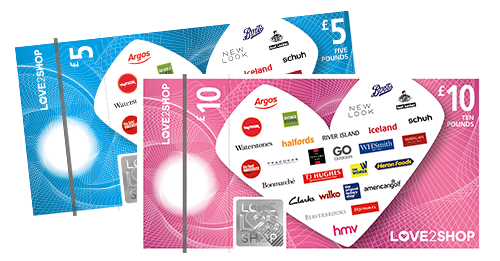You’re killing staff morale without even realising it, and we can explain how
Staff morale is an insidious crisis. As we’ve pointed out before, up to half of your staff are thinking about leaving. Keeping those employees in your business, and happy to be there, needs to be top priority.
Morale is more than smiling faces and chipper attitudes, though. It’s how your staff approach their work, how they treat each other, and how they see their own place in your company.
But, what you’re doing to hurt morale won’t always be obvious. There are nine ways you could be destroying staff morale without even knowing you’re doing it.
Not giving staff a voice
 Workers are only human, and humans need to be heard. Their point of view needs to be considered, and their opinions need to be given weight to keep staff morale high.
Workers are only human, and humans need to be heard. Their point of view needs to be considered, and their opinions need to be given weight to keep staff morale high.
If employees think their opinions on their job aren’t wanted, they’ll start to feel undervalued and ignored. Feeling that their point of view doesn’t matter to senior colleagues, morale will quickly spiral. Everyone needs to receive feedback. And leaders must be seen to seek it out.
Not recognising employees
Recognition is the one thing you could start doing today that would improve staff morale. You don’t have to wait for the budget or approval to roll out an employee engagement platform to get started. Even though they do make recognition a much easier task to manage.
Recognition, filtered through your company’s values, shows employees the value and worth of their daily work.
Not talking about the future
 When you’re taking a train, you check where it’s going before you hop on. You don’t just hope the train is going somewhere nice, or blindly assume it’s going to the right place.
When you’re taking a train, you check where it’s going before you hop on. You don’t just hope the train is going somewhere nice, or blindly assume it’s going to the right place.
Staff without any idea where they’re going are like lost passengers who think they’ve got the wrong train. Looking out the windows for landmarks. Asking other passengers where they’re going. And, ultimately, thinking it’s best they hop off the train now before it’s too late to turn back.
Give employees a firm idea of where their company is going. It lets them get invested in the journey, and smooths out the fear that they’re not heading somewhere worthwhile.
Undermining your company values
So, you’re an energetic, agile company on a mission to change the face of central heating repair forever. You believe in integrity, quality and unmatched customer service. But, does your work practice live up to that? Do your leaders? And, crucially, are you both held to account?
If your values aren’t seen to be carried out, they won’t be seen as important to how you do business. It also presents your company’s leadership as two-faced; wanting the benefits of appearing to be values-led without the inconvenience of carrying those values out.
That creates a dysphoria in how your staff see your brand. Employees can’t embrace their work as driven by values if they don’t get to see those values in action.
Letting excellence go unrewarded
 Outstanding behaviour doesn’t just deserve to be rewarded, it needs to be rewarded. Don’t miss the opportunity to mark special moments in an employee’s time with your company. We’ve got a whole blog post over here detailing when you need to be breaking out your rewards for staff.
Outstanding behaviour doesn’t just deserve to be rewarded, it needs to be rewarded. Don’t miss the opportunity to mark special moments in an employee’s time with your company. We’ve got a whole blog post over here detailing when you need to be breaking out your rewards for staff.
Failing to find purpose
What does your company do? Beyond just revenue, profit and loss. What’s the outcome of your company’s efforts, what’s different in the world when you meet your objectives?
Pouring emotions into work, and taking personal satisfaction from it, means having something to point to when it’s all done. Something more than a graph being bigger than a graph you made earlier.
Purpose gets employees invested in what your company is, and what it does. It creates people loyal not just to their paycheques, but the differences your company makes to the world around them. Long term, that builds real engagement with your business.
Assuming quiet employees are happy
Squeaky wheels get the grease, no news is good news, and so on. As a blanket rule for work, it’s nonsense. Dissatisfaction festers in the shadows, and employees at risk of checking out and looking for another position are likely to go quiet on you.
Unhappy and silent staff have stopped looking at leadership as a way to fix issues. Restoring that relationship means getting them talking again and asking about what’s making them unhappy.
Enforcing inflexible work
 Flexibility is one of the most-demanded perks across the country. And for good reason. Time outside work is at a tremendous premium, and the demands of work aren’t easing up either.
Flexibility is one of the most-demanded perks across the country. And for good reason. Time outside work is at a tremendous premium, and the demands of work aren’t easing up either.
To meet the demands of professional life, many employees chip in with their personal time. No shocks for anyone there. However, it’s unreasonable for a company to demand staff give more than their contracted hours every week, but still feel entitled to tell them where all of those hours get spent.
There has to be give and take. Without flexibility, staff will grow frazzled trying to juggle ever-increasing professional and personal stresses. Ultimately, that means looking elsewhere for a more flexible working arrangement.
Stifling job scope
Employees often end up feeling like they’re in a box. In trying to streamline roles and make working processes efficient, what staff actually do can become extremely constrained.
Work becomes a production line of tasks, designed to run at max capacity for eight hours a day. It doesn’t leave much room for creativity or expression. Or any space to gather and express new skills. When staff feel trapped their relationship with their work turns hostile. In turn, that creates a huge drag on morale.
Recognising these problems, and acting to reassess your behaviour as a leader, is how you can turn the tide. Otherwise, poor staff morale only leads to problems with staff retention, productivity and engagement.


 Education and skill-building are vital. Investing in staff builds employee value to your business, and your company’s value to them in turn. Celebrating employees for building their professional skills shows how much your company values self-improvement.
Education and skill-building are vital. Investing in staff builds employee value to your business, and your company’s value to them in turn. Celebrating employees for building their professional skills shows how much your company values self-improvement. A collaborative, constructive environment is a productive environment. Make sure employees are rewarded when they build connections between teams.
A collaborative, constructive environment is a productive environment. Make sure employees are rewarded when they build connections between teams. KPIs, sales targets, and hard numbers are the old reliable for rewards. On one hand, it’s the least imaginative reason to reward your staff, and it really only reinforces and promotes behaviour that produces the cold numbers. On the other hand, every department has to hit their numbers.
KPIs, sales targets, and hard numbers are the old reliable for rewards. On one hand, it’s the least imaginative reason to reward your staff, and it really only reinforces and promotes behaviour that produces the cold numbers. On the other hand, every department has to hit their numbers.
 Hear us out! A really comfortable set of socks is un-ironically a fantastic gift for a colleague, despite the stigma around socks. Bonus points for getting a bit of personalisation in there.
Hear us out! A really comfortable set of socks is un-ironically a fantastic gift for a colleague, despite the stigma around socks. Bonus points for getting a bit of personalisation in there. Plastic straws are on the way out, but not everyone is happy with the paper straw, and some people with disabilities can’t enjoy their drinks without a straw.
Plastic straws are on the way out, but not everyone is happy with the paper straw, and some people with disabilities can’t enjoy their drinks without a straw. One of the modern greats in party games, and all-but guaranteed to produce at least one memorable moment per round.
One of the modern greats in party games, and all-but guaranteed to produce at least one memorable moment per round. For some people there’s really nothing more exciting than a new thermonuclear, sinus-searing hot sauce. A brilliant stocking filler and a great Secret Santa gift for colleagues with a capsicum addiction.
For some people there’s really nothing more exciting than a new thermonuclear, sinus-searing hot sauce. A brilliant stocking filler and a great Secret Santa gift for colleagues with a capsicum addiction. The
The 

 Cash isn’t scarce, so it isn’t special. I’ll use an example to illustrate. Cast your mind back to the days when coal used to get delivered on a lorry. The coal man comes, and because Mrs Smith found Derek the coal man’s lost dog last week, he gives Mrs Smith some extra lumps of coal for the month.
Cash isn’t scarce, so it isn’t special. I’ll use an example to illustrate. Cast your mind back to the days when coal used to get delivered on a lorry. The coal man comes, and because Mrs Smith found Derek the coal man’s lost dog last week, he gives Mrs Smith some extra lumps of coal for the month. One of the single greatest sources of stress for everyone is money. This isn’t limited to low-earning employees either; a healthy glut of people earning above £50k a year find themselves in some financial agony every month.
One of the single greatest sources of stress for everyone is money. This isn’t limited to low-earning employees either; a healthy glut of people earning above £50k a year find themselves in some financial agony every month. Not every trophy is actually a trophy. Some trophies are memories of a nice meal, some novelty tea towels, new walking boots, a television or a certificate. Non-cash rewards feel “earned,” and become trophies of achievement.
Not every trophy is actually a trophy. Some trophies are memories of a nice meal, some novelty tea towels, new walking boots, a television or a certificate. Non-cash rewards feel “earned,” and become trophies of achievement.


 A letter of appreciation from senior management makes it clear to an employee that their service is noted, welcome, and valued.
A letter of appreciation from senior management makes it clear to an employee that their service is noted, welcome, and valued.

 It’s natural for staff to ask for cash, and it makes gifts easy, but be wary.
It’s natural for staff to ask for cash, and it makes gifts easy, but be wary. A sabbatical is a great way to reward your longest-serving employees.
A sabbatical is a great way to reward your longest-serving employees.
